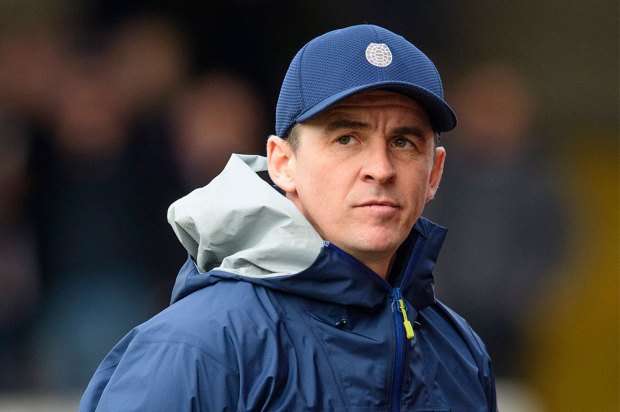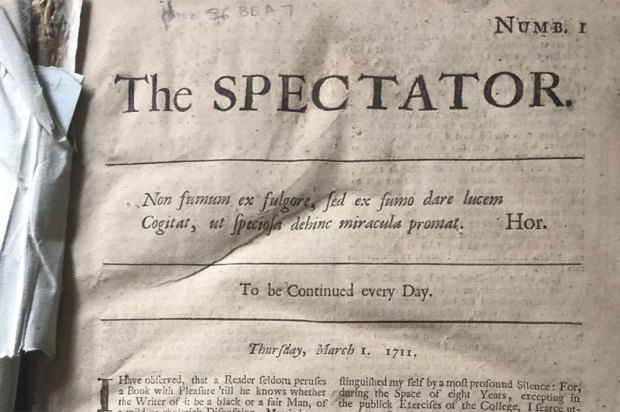That the House of Lords has survived as an unelected chamber is largely down to the Salisbury Convention, which holds that peers do not vote down government bills on matters which appeared in the governing party’s election manifesto. It is a doctrine under attack as never before, partly as a result of the Lords’ votes against the government’s Brexit plans but also as a result of the Upper House’s battle of attrition against the government on press standards.
It is bizarre to see an issue of such little importance to the public taking up so much parliamentary time. For generations, freedom of the press was regarded as an essential British liberty — the sort that people entered parliament to defend. Now we see Ed Miliband making passionate speeches against it, as if seeking revenge for the not-always-reverential way in which he was treated in the run-up to the 2015 general election. The same goes for Tom Watson, Labour’s deputy leader, who is seldom written up with much affection. In a previous era, politicians who disliked newspapers would have decided not to read them. Now they call them to heel.
Perhaps the most concerning proposal heard in parliament is for newspapers — and magazines — to be forced to pay the legal costs of anyone who sues them, whether successfully or not. This is an extraordinary proposal for any democracy. In any other context it would be seen as an act of simple persecution: choose a victim, then deprive them of basic legal rights.
The same MPs who quite rightly criticise Viktor Orban’s behaviour with the Hungarian press, then vote for policies that would make Orban blanch. To have the House of Commons even consider it is a sign of how many MPs either don’t understand what they are voting for or don’t value the liberties they’re supposed to protect.
The only way newspapers could escape, under this proposal, is if they agreed to fall in line behind a state-mandated regulator: in this case Impress, bankrolled by the notorious Max Mosley. Mosley also financed Tom Watson, Labour’s deputy leader, and is certainly getting his money’s worth. Watson was hard at work this week arguing for another inquiry into the press. Its only purpose would be to harass newspapers in general and Rupert Murdoch’s titles (and staff) in particular. Watson was using as evidence this week the behaviour of journalists in Manchester who, he says, were aggressive in their pursuit of quotes from the victims of last year’s bomb. Yet there is already an inquiry into this, led by Bob Kerslake, so why do we need another?
The police investigations into the hacking scandal underlined that laws already exist to prosecute journalists who break them. Take the case of Meghan Markle’s father, who was photographed looking up his daughter on the internet. The publication of these pictures was held up, in some quarters, as an example of deplorable press intrusion — until it emerged that Mr Markle had posed for those pictures with a photography agency — as he is perfectly at liberty to do. Such pictures will be taken as long as there are news websites, anywhere in the world, willing to pay for them.
To assert, as Lady Hollins did in the Lords debate this week, that the government should seek to impose media standards in the same way as it does building standards or standards for drinking water, misunderstands the relationship between parliament, the executive and the press. In any functioning democracy, the last fulfils a vital role in holding the former two to account. It is an unacceptable conflict of interest to have governments telling newspapers what they can and cannot say.
You do not have to look far around the world to find examples of where power has been abused when the press has been silenced. A prime offender in this respect — President Erdogan of Turkey — was in London this week. He can be denounced for authoritarianism here, but any Turkish newspaper that criticises him can expect to be closed down.
Before long, MPs will be asked to vote again on press regulation. Their choice is clear: either they support the basis of a free press or they seek to undermine it. If they are in the latter camp, they will sit with Orban, Erdogan and others who believe that press freedom is an outdated notion in the 21st century and that a new hierarchy of media regulation needs to be set up — with politicians sitting at the top.
Ten years ago, the Labour–dominated Culture, Media and Sport Committee summed the situation up. Statutory regulation of the press, it said, is ‘a hallmark of authoritarianism and risks undermining democracy’. This was a point of principle. Either the press is free, or it must operate within parameters defined by the government. This is a battle being fought in parliaments all over Europe. Our MPs will again have to decide which side they are on.
Got something to add? Join the discussion and comment below.
Get 10 issues for just $10
Subscribe to The Spectator Australia today for the next 10 magazine issues, plus full online access, for just $10.
You might disagree with half of it, but you’ll enjoy reading all of it. Try your first month for free, then just $2 a week for the remainder of your first year.














Comments
Don't miss out
Join the conversation with other Spectator Australia readers. Subscribe to leave a comment.
SUBSCRIBEAlready a subscriber? Log in